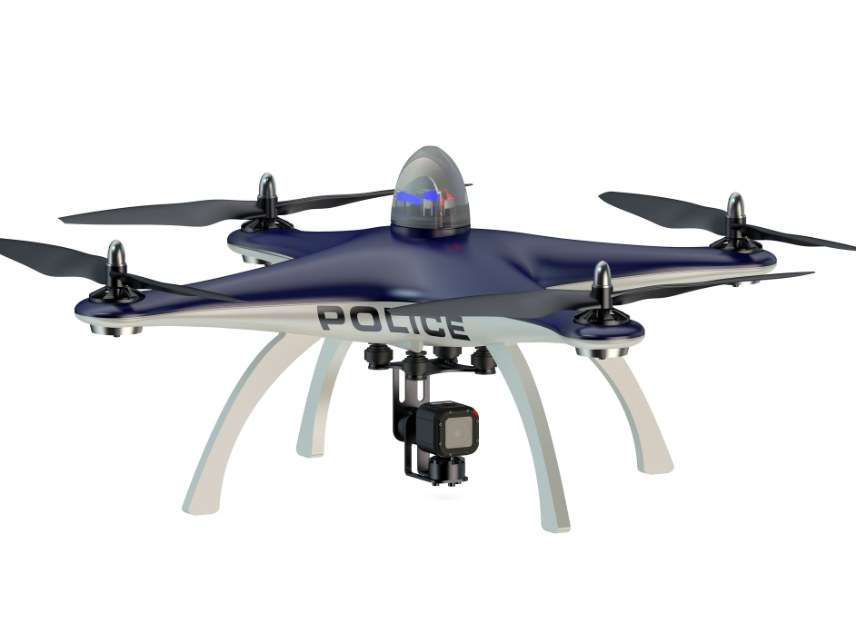Let Police Operate Drones for Emergencies—but with Full Transparency
Activists fear secret surveillance. Push for firmly enforced rules instead of bans.

The Los Angeles Police Department has been given permission by its civilian commission to start testing drone use in the city, despite significant opposition by citizen activists and civil rights groups.
By a vote of 3-1 yesterday, with opponents protesting outside, the Los Angeles Police Commission approved a limited program to introduce drones (now often called Unmanned Aerial Systems) to the force.
How limited? LAPD Chief Charlie Beck says they're going to purchase just two drones—one to operate and one for backup. Not exactly the start of a massive city surveillance system. The rules for using the drones at the moment are strict.
Via the Los Angeles Times:
Under those rules, only SWAT officers will be allowed to fly drones during a handful of specific, high-risk situations. They can also be used during search and rescue operations, or when looking for armed suspects who have "superior firepower," an "extraordinary tactical advantage" or who are suspected of shooting at an officer.
Each flight must be approved by a high-ranking officer. Any request to fly a drone — whether approved or not — will be documented and reviewed. The Police Commission will also receive quarterly reports that will be made public.
For the most part, there are no objections to the rules. Rather, groups like the Southern California chapter of the American Civil Liberties Union (ACLU) don't trust the drone operations will be as limited as the police say and mission creep is inevitable. Staff Attorney Mohammad Tajsar warned in a letter:
[T]he LAPD's proposed drone policy does not sufficiently protect the privacy and civil rights of Los Angeles residents. Although the policy circumscribes the permissible uses of drones to eight different situations (including "active shooter incidents" and "perimeter searches of armed criminals"), it does not appropriately define these situations and does not specifically prohibit the department from using them in other circumstances. As a result, the Commission's approval of the draft policy likely opens the door to a broader range of permissible uses of drones at later dates—particularly when the policy does not require the LAPD to return to the Commission for subsequent approval of additional permissible uses.
The overwhelming majority of the correspondence the commission received has been in opposition, which makes some sense. This opposition is very much a reflection of a lack of trust in the Los Angeles Police Department. Just this past fiscal year, the department paid out $81 million in settlements for negligent or criminal police behavior. The city borrowed $70 million to keep from having to dip into reserve funds to pay its litigation costs.
Does mission creep justify a full ban? If using a drone could reduce risks to police and at the same time not put citizens at greater risk (which is what happens when we allow police to militarize their gear), it's worth doing. Technological solutions that help protect police officers are preferable to some other alternatives, like expanding hate crime laws that increase criminal penalties even further for people who target police.
Rather than a ban, consider approaching police drone policy with full transparency. Treat them like body cameras and don't allow police departments to decide the rules for their use. When police break the rules, punish them and throw out any cases that involve inappropriate drone surveillance.
The LAPD also has problems with transparency, which may be why the ACLU is unwilling to give them the benefit of the doubt. Beck has put into place a policy (and the city has defended it) refusing to consider police body camera footage to be public records unless a court ordered them to release it. The concern that the LAPD would expand drone use without the public ever knowing about or being able to respond to it is very real.


Show Comments (39)